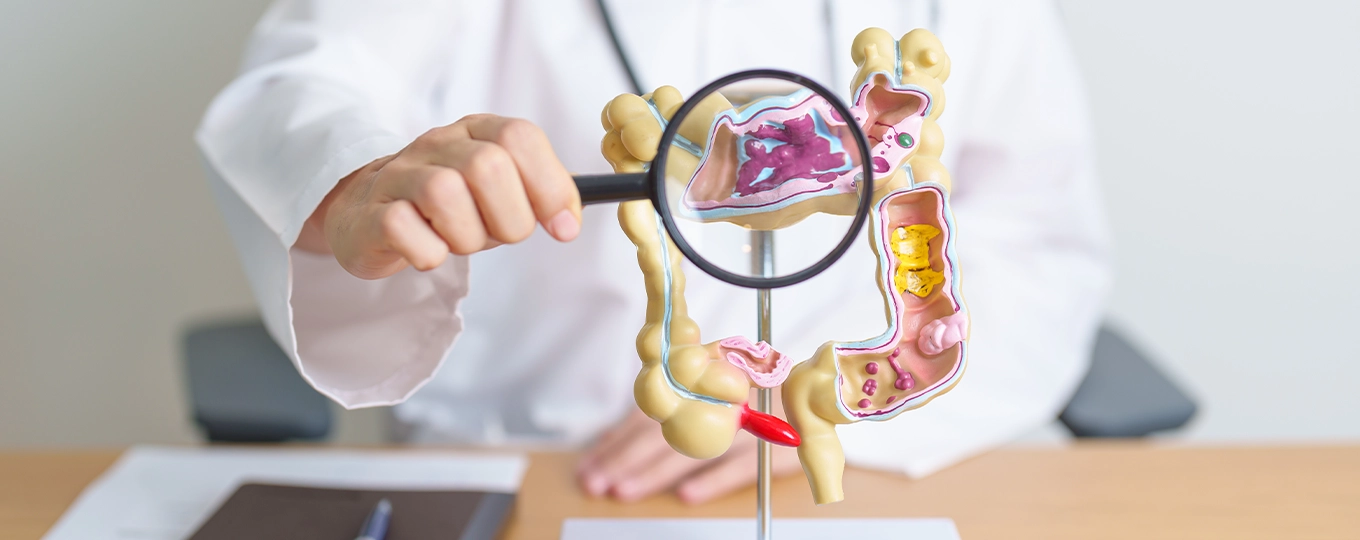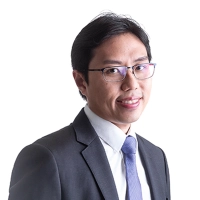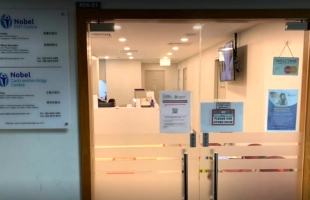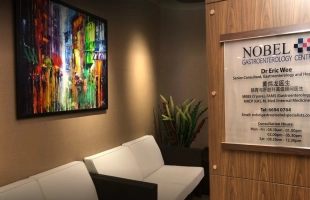Comprehensive Care for Digestive & Liver Health at Nobel
Nobel Gastroenterology Centre treats individuals with digestive, bowel, and liver problems. Our medical team is helmed by experienced doctors - Dr Eric Wee and Dr Wang Yu Tien, both of whom are Senior Consultants specialising in Gastroenterology and Hepatology.
Nobel Gastroenterology provides a comprehensive range of diagnostic tests spanning the breadth of digestive and liver disorders. These modern devices assist doctors in clinching an accurate diagnosis, even in challenging situations. Our Gastroenterologists perform both gastroscopy (stomach) and colonoscopy (colon) in Singapore. We also offer advanced endoscopy procedures to patients and other specialists.
Our philosophy at Nobel Gastroenterology Centre is to provide patients with quality and affordable care. We trust that the expertise of our Senior Consultants will provide you with the solutions to your health issues.
Book a Stomach & Liver CheckupOur Gastroenterology & Hepatology Services
At Nobel Gastroenterology Centre, we provide a full range of bowel, digestive and liver health services, managing both common and complex conditions. Our approach includes a comprehensive consultation and personalised treatment plans tailored to your specific needs.

- Diarrhoea and constipation
- Blood in stools, positive stool occult blood test
- Irritable bowel syndrome (IBS)
- Abnormal CEA (cancer marker)

- Abdominal pain and gastric pain
- Indigestion, bloating and acid reflux
- Helicobacter pylori infection
- Pancreas problems and bile duct stones
- Abnormal CA19-9, CA72-4 (cancer markers)

- Hepatitis & Abnormal Liver Blood Tests
- Jaundice (elevated bilirubin)
- Elevated AFP (liver cancer marker)
- Viral Hepatitis A, B, and C
- Fatty liver disease
- Liver cirrhosis
- Gastroesophageal acid reflux disease (GERD)
Nobel Gastroenterology Centre Offers an Extensive Range of Diagnostic Tests
To ensure accurate diagnosis and effective treatment, Nobel Gastroenterology Centre offers a range of advanced diagnostic tests tailored to assess digestive and liver health.

Diagnostic tests includes:
- Urea Breath Test (UBT) for H. pylori infection
- FibroScan for liver disease
- Breath test for lactose and fructose maldigestion
- Small intestinal bacterial overgrowth (SIBO) breath test
- Acid reflux pH studies:
- Esophageal pH -impedance catheter
- Wireless pH capsule
- Esophageal mucosal integrity test
- Esophageal Manometry
- Small intestine capsule endoscopy
- Colonoscopy and gastroscopy for cancer and polyps

Why Choose Nobel Gastroenterology Centre?
- Experienced Specialists: Skilled doctors with expertise in gastroenterology and hepatology.
- Advanced Diagnostics: Access to modern screening and treatment facilities with a wide range of diagnostic tests to detect digestive and liver conditions accurately.
- Patient-Centric Care: Individualised treatment plans based on medical needs, ensuring personalised and effective care.
- Comprehensive Testing: Offering advanced diagnostic services such as endoscopy, colonoscopy, and specialised breath tests to aid in precise diagnosis and early intervention.
Meet Our Gastroenterologist at Nobel Gastroenterology Centre

Dr Wang Yu Tien
Dr Wang Yu Tien joins us with nearly 20 years of experience from Singapore General Hospital where he was senior consultant, director of research and a faculty of senior resident training at the department of Gastroenterology and Hepatology.
He is experienced in managing the full spectrum of gastrointestinal and liver diseases as well as endoscopy. His subspecialty interest is digestive function disorders (e.g. Gastroesophageal Reflux and Irritable Bowel Syndrome). He was also the former director of the Gastrointestinal Function Laboratory at Singapore General Hospital and past Scientific Chairperson of the Gastroenterology Society of Singapore.
He has published in top gastroenterology journals and has served as the Gastroenterology specialty editor of Singapore Medical Journal.
Read More About Dr Wang
Dr Eric Wee
Dr Eric Wee is a Gastroenterologist who manages all aspects of digestive, bowel and liver conditions. His subspecialty is in advanced endoscopy. Dr Wee is a member of the Royal College of Physician (UK), member of the American Gastroenterology Association (USA), member of the Faculty of Medical Experts (Academy of Medicine) and a fellow of the Academy of Medicine (Singapore).
He has held senior appointments such as the Head of the Division of Gastroenterology at Khoo Teck Puat Hospital, Chairman of the Nutrition workgroup and Associate Program Director of the NHG Gastroenterology Residency Program.
Read More About Dr EricWhat is Endoscopy?
An endoscopy is a procedure which evaluates the digestive tract. This involves inserting a flexible tube with a camera at its end into the stomach or colon. Our endoscopy centre provides ultra-slim, high-definition endoscopes, ensuring that patients have a comfortable and accurate procedure.
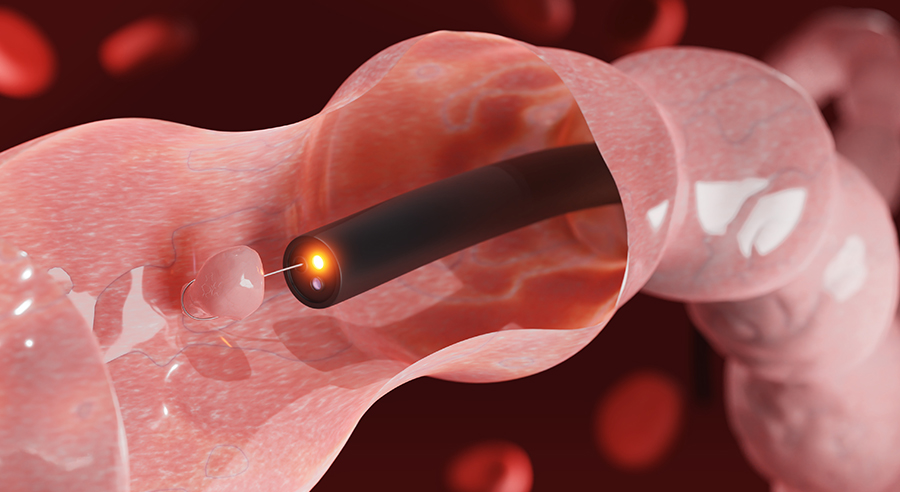
We perform the following:
- Colonoscopy
- Gastroscopy, including transnasal gastroscopy
- Enteroscopy of the small intestine
- Endoscopic ultrasound with aspiration
- ERCP for bile duct and pancreas disorders
Early detection is key to effective treatment. Don't wait for symptoms to worsen—schedule an appointment today and take proactive steps towards better digestive and liver health. Contact us to learn more about our diagnostic services and how we can support your health journey.
Make An AppointmentFAQs About Gastroenterology & Hepatology Conditions
Gastroenterology is the branch of medicine that deals with disorders of the digestive system, including the oesophagus, stomach, intestines, pancreas, and gallbladder. Hepatology is a subspecialty of gastroenterology focused on liver diseases, including hepatitis, cirrhosis, and liver cancer.
Common symptoms include bloating, abdominal pain, acid reflux, diarrhoea, constipation, nausea, and unexplained weight loss. Persistent symptoms should be evaluated by a specialist.
You should consult a gastroenterologist if you experience ongoing digestive symptoms such as chronic acid reflux, frequent stomach pain, persistent diarrhoea or constipation, unexplained weight loss, or blood in stools.
A colonoscopy is a key procedure in gastroenterology. It helps diagnose and monitor a range of digestive conditions affecting the large intestine, including colorectal cancer, polyps, and inflammatory bowel disease (IBD). It is also recommended for individuals experiencing symptoms such as persistent diarrhoea, constipation, rectal bleeding, or unexplained abdominal pain.
The liver is a vital organ responsible for metabolism, detoxification, and digestion. In Singapore, liver diseases are becoming more prevalent due to lifestyle habits, viral infections, and metabolic disorders. Recognizing the signs early can help in prevention and timely treatment.
- Fatty Liver Disease (NAFLD & AFLD)
Non-Alcoholic Fatty Liver Disease (NAFLD): Linked to obesity, diabetes, and high cholesterol, NAFLD is a growing concern in Singapore. If left untreated, it may progress to liver inflammation and scarring.
Alcoholic Fatty Liver Disease (AFLD): Excessive alcohol consumption can lead to fat buildup in the liver, increasing the risk of liver damage and cirrhosis. - Hepatitis (Hepatitis B & C)
Hepatitis B: A common viral infection in Singapore that can lead to chronic liver disease or liver cancer if not managed properly. It spreads through blood, unprotected sex, or from mother to baby at birth.
Hepatitis C: Less common but can cause chronic liver inflammation, increasing the risk of cirrhosis and liver cancer. - Liver Cirrhosis
This is a late-stage liver disease caused by prolonged damage from conditions like chronic hepatitis, fatty liver disease, or alcohol abuse. It leads to scarring (fibrosis), which affects liver function and may cause complications like liver failure. - Liver Cancer (Hepatocellular Carcinoma - HCC)
Liver cancer is among the top causes of cancer-related deaths in Singapore. Chronic hepatitis B, fatty liver disease, and cirrhosis are major risk factors. Early detection through liver screenings can improve treatment outcomes. - Liver Infections & Autoimmune Diseases
Liver abscesses (collections of pus in the liver) and autoimmune liver diseases can also impact liver health, leading to inflammation and scarring if not treated early.
Maintaining a healthy diet, reducing alcohol intake, managing weight, and getting vaccinated against hepatitis B can help prevent liver diseases. Regular health screenings are essential for early detection and treatment. If you have persistent fatigue, jaundice, or abdominal pain, consult our doctors for expert advise.
Fatty liver disease occurs when excess fat accumulates in the liver, often due to obesity, diabetes, high cholesterol, poor diet, or excessive alcohol intake. It can lead to inflammation, liver damage, and long-term complications like cirrhosis if left untreated. In early stages, fatty liver can be reversed.
Lifestyle & Dietary Changes
1. Weight Loss – Losing 5-10% of body weight can significantly reduce liver fat.
2. Healthy Diet
Eat whole foods rich in fiber (fruits, vegetables, whole grains).
Include lean protein (fish, poultry, tofu, legumes).
Reduce refined carbohydrates and added sugars.
Increase healthy fats (avocados, nuts, olive oil).
3. Regular Exercise
Engage in at least 150 minutes of moderate-intensity exercise per week.
Strength training also helps improve metabolism and insulin sensitivity.
4. Limit Alcohol Intake
Completely avoid alcohol of any kind.
Medical Management
Manage Diabetes & Cholesterol – Medications and lifestyle changes help control risk factors.
Monitor Liver Health – Regular liver function tests at our Healthway Screening Centres can monitor and track improvement.
If caught early, fatty liver disease is reversible with lifestyle changes. However, if left untreated, it can progress to liver inflammation (steatohepatitis), fibrosis, or even cirrhosis, which can be life-threatening
Colonoscopy is a crucial preventive procedure that helps detect colorectal cancer early, when it's most treatable. But how often you need one depends on several important factors.
General Guidelines for Colonoscopy Frequency
Average Risk Individuals:
For most healthy adults with no symptoms or family history of colorectal cancer, doctors typically recommend getting your first colonoscopy at age 45. If your results come back clear and normal, you'll likely only need the procedure once every 10 years thereafter.
Family History of Colon Cancer:
If you have an immediate family member (parent, sibling, or child) who's had colorectal cancer or certain types of polyps, you may need screening earlier—typically starting at age 40, or 10 years younger than your relative’s age at diagnosis. In these situations, doctors usually recommend repeating colonoscopies every 3–5 years, depending on your individual risk factors.
Previous Polyps or Abnormal Results:
If you've had a colonoscopy before and doctors found polyps or other abnormalities, you'll likely need follow-up colonoscopies more frequently—generally every 3–5 years. Your doctor will give you a specific timeline based on the number, size, and type of polyps discovered.
High-risk Conditions:
People with inflammatory bowel diseases like Crohn’s Disease or Ulcerative Colitis or inherited conditions such as Familial Adenomatous Polyposis (FAP) require more frequent and earlier screenings. In these cases, doctors may recommend colonoscopies as often as every 1–2 years.
A gastroscopy, also known as an upper endoscopy, is a procedure that allows a doctor to view the lining of the upper digestive tract. This includes the oesophagus, stomach, and the first part of the small intestine, called the duodenum. Using a thin, flexible tube with a camera at the tip, known as a gastroscope, doctors can check for inflammation, ulcers, or other abnormalities, and perform biopsies if necessary.

